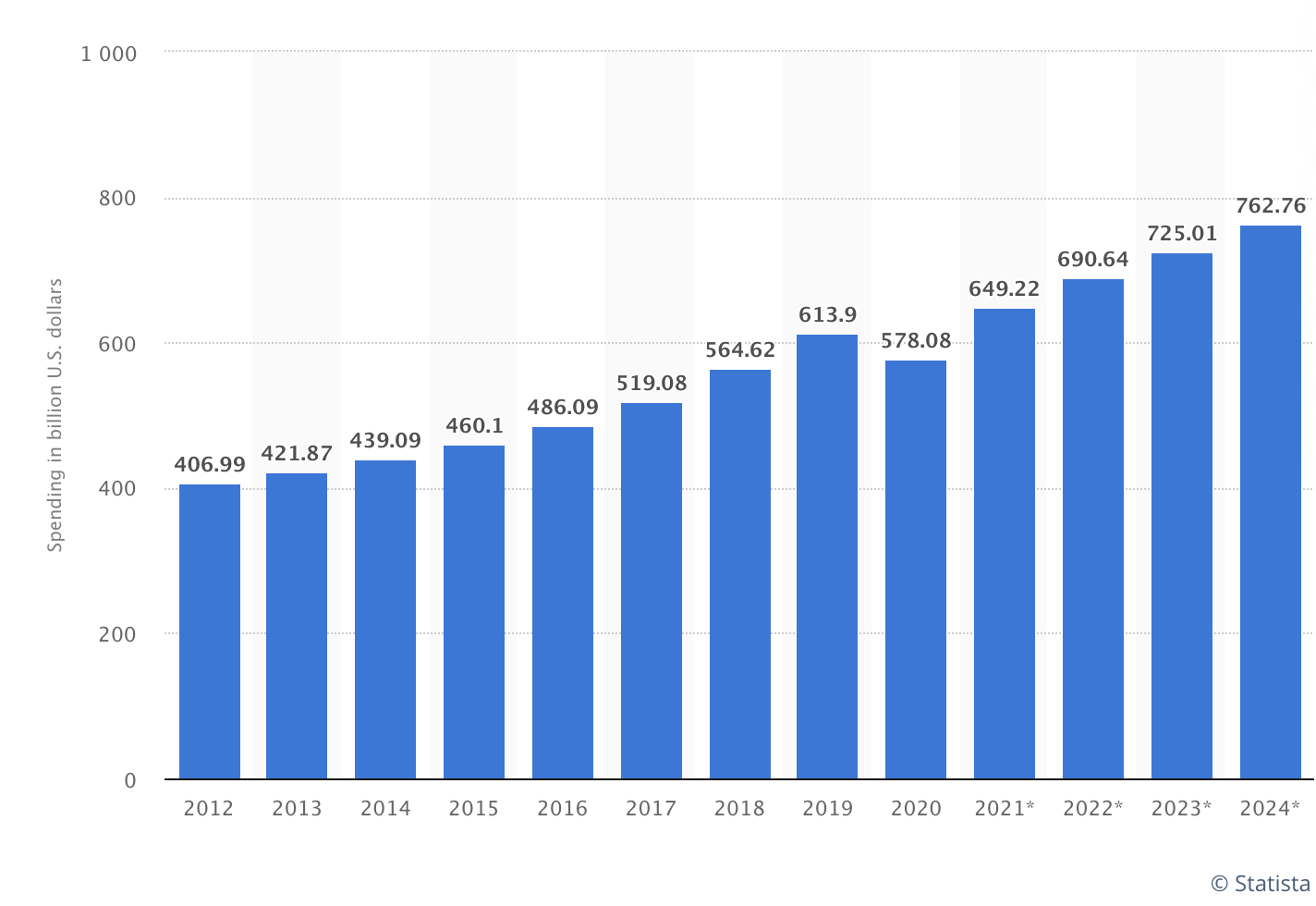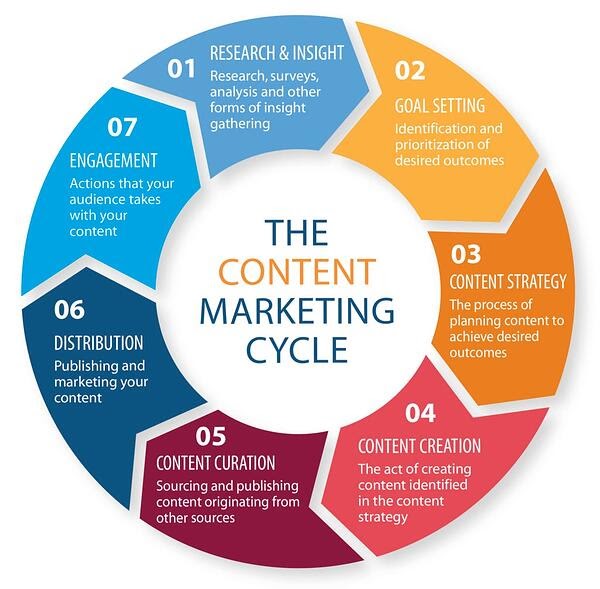As of January 2021, there were 4.66 active internet users worldwide—59.5 percent of the global population! What do people do on the internet? They communicate, gather information, socialize, find entertainment, and shop (among other things). In other words, there’s a lot to do on the internet.
But let’s talk about that last one. Because more and more people are moving online to shop (especially since COVID-19), offline marketing just isn’t as effective as it used to be.
If you’re looking for a career in digital marketing, you probably know that.
Digital marketing is any form of marketing done online—and it’s the career path to be on in 2021. But because it’s such a relevant industry, the competition to land a gig is fierce.
It’s time to get strategic. As part of our Digital Marketing Series, we’re running you through four in-demand digital marketing jobs and the skills you need to get started—so you check off all the boxes at your next interview.
Ready to launch your career in digital marketing?
1. Social Media Manager
The purpose of social media platforms is to build online communities. As of 2020, the average internet user spends 145 minutes a day on social networking apps—that’s at least 2 hours looking at a screen! They must be doing something right.
I took a look at my own screen time, and that statistic is pretty accurate. Of my four hours of screen time a day, roughly half is on social media—a huge chunk of my internet usage.
Businesses are now quite aware that their prospects spend tons of time on social networks—which means that these apps are prime marketing and advertising space. And with more and more popping up, businesses will continue to seek savvy social media managers.
What do social media managers do? Social media marketing is the use of social media platforms to connect with an audience to build brand awareness, drive website traffic, and increase sales. While it’s involved at all stages of the conversion funnel, its role is especially important at the top of the funnel.
Top skills you need to be a social media manager
- Organized: As a social media manager, you’ll need to think ahead and plan a content calendar. What will you post, on what days, and at what time? What assets do you need created, and by whom, to post according to schedule? These are all questions you need to consider to execute a social media strategy.
- Creative: There’s a whole lot of marketing content out there on social media—so how can you get yours to stand out? In addition to staying on top of industry trends, you need to demonstrate that your version of these trends will catch the audience’s attention.
- Community-building: To be a solid social media manager, you need to engage your audience. You know where they spend their time, how they spend it, and what gets them excited. You know their language and how to speak it. The result? A dedicated community behind your brand.
- Agile: While you’ll create a content calendar, nothing ever goes as planned, right? Perhaps a contractor doesn’t send you design assets in time, or some unforeseen world event takes over the news, or your brand gets some bad publicity—whatever it is, you need to be prepared to shift your plans, reduce risk, and recover.
To get started, we recommend jumping on these social media platforms, getting comfortable using them as marketing tools, and joining relevant networks (such as #MarketingTwitter on Twitter) to learn more about the industry. Tips and hacks are readily available—you just need to find them.
Plus, half the battle of landing a job is having an “in.” Identify companies you’d like to work for and connect with their marketing department—so if any postings pop up, you’ll be a friendly, familiar face.
2. SEO Specialist
If you’ve taken a look at our SEO Series, you know that search engine optimization is the process of improving your website’s ranking in the search engine results organically. The better visibility your pages have in these search results, the more likely you will garner attention and attract prospective and existing customers to your business. SEO specialists know how to make this happen.
As long as search engines are around, SEO will always be an integral part of a business’ marketing strategy. (We have a feeling Google won’t be going anywhere soon.)
However, SEO admittedly requires a lot of effort and knowledge, so businesses typically outsource to an agency or specialist. In other words, it’s your time to shine.
Top skills you need to be an SEO specialist
- Critical thinking: As an SEO specialist, you need to understand that no two websites are the same. Every time you audit a website, you’ll need to scope out their on-page and off-page SEO and determine which areas need improvement.
- Research-minded: From finding backlink opportunities to target keywords, a skilled SEO specialist will know how and where to find these SEO gems. Whether it’s through SEO tools or your own searching, you need to demonstrate that you have solid research capabilities.
- Strategic: An SEO strategist’s to-do list is never-ending because most tasks eat up a lot of time. So which tactic would give you the most bang for your buck? Prioritizing your workload to get the best results is essential for this job.
- Analytical: Analytics is the backbone of SEO—how else will you measure the success of your efforts? In addition to pulling data, you also have to know how to read and interpret this data. More importantly, you need to know how to act on this data. What changes can you now make to improve your SEO? If you can explain this to your future boss, you’re in good shape.
If this sounds like a role for you (Hey, welcome to the club!), then we recommend brushing up on SEO basics—how to set up a strategy, what types of tactics you should use (and should not use), and how to use SEO tools like Moz and Ahrefs.
Here’s a handy beginner’s video on SEO using Ahrefs.
3. Paid Media Specialist
Most businesses are well aware that their organic social media posts and SEO efforts will only get them so far. To widen their reach, they need to put some money into their marketing.
But managing an advertising campaign is a lot of pressure. If they don’t know what they’re doing, they could drain their budget fast—which is why many businesses outsource their paid media efforts to agencies like us.
A paid media specialist, also known as a PPC specialist, is an expert in internet advertising. They’re responsible for planning and optimizing the effectiveness of paid digital marketing campaigns, which can include search, display, and social media ads. If you’re following our Paid Media Series, you already know a thing or two about paid media strategy.
Global advertising revenue has increased year-over-year for the past decade and is projected to grow. Statistica predicts it will reach 762 billion USD by 2024. Businesses are dedicating more money to their marketing—and they want someone who can give them the best ROI.
Top skills you need to be a paid media specialist
- Analytical: Paid media specialists are numbers people. They need to be comfortable working with statistics and data to make improvements to their campaigns. Their work is driven by metrics, such as cost-per-click (CPC), cost-per-acquisition (CPA), and return on ad spend (ROAS).
- Creativity: To get people clicking on your ads, they need to be captivating. Eye-catching designs and succinct copy are imperative for successful ads. All you have is 30 characters for Google Text ads—you need to know how to make them count!
- Technical: There are many technical aspects to paid media management, such as understanding HTML and JavaScript, deciphering tracking and retargeting codes, and using tags correctly. Paid media specialists also need to understand technology from a user standpoint to keep up with the latest trends for browsers, devices, etc.
- Detail-oriented: While most people throw their hands up in the air when an ad doesn’t perform, experienced paid media specialists have incredible attention to detail and can spot potential blockers right away. Oftentimes, they require small changes—a simple word swap or slight adjustment to the target audience is all it could take to turn around the results.
Employers will be looking for experience using Google Ads and Facebook Ads—the two most popular advertising platforms. If a career in paid media sounds up your alley, we recommend getting trained or certified in Facebook and Google Ads. Along the way, you’ll learn about the customer journey—and how to optimize your campaigns from pre-click to post-conversion.
Optimizing the entire customer journey is essential for getting the most bang for your buck. Neil Patel explains it well in this video.
4. Content Marketer 
In today’s consumer world, it simply isn’t enough to sell products or services. To score customers and get them coming back, you need to offer more value to them. This is where content marketing comes in.
The Content Marketing Institute defines content marketing as a marketing technique of creating and distributing valuable, relevant, and consistent content to attract and acquire a clearly defined audience—to drive profitable customer action down the line.

Source: Simplifie
The first part of that definition is most important. Content marketing is all about providing added value. It builds connections and trust with your brand. There are no strings attached, but a sale or signup here or there wouldn’t hurt either.
- Storytelling: Whether it’s through writing, images, or video, content marketers have an eye for storytelling. They know what stories to tell, how to tell them, and when to tell them. Talented content marketers are very familiar with the conversion funnel and the content most suitable for each stage of the funnel.
- Customer-centric: Content marketing centers around the customer. You will constantly ask yourself what questions and pain points your customers have and how you can help. When pitching your product or service, your content focuses on how it solves their problems.
- Copywriting/editing: Because a lot of content is written (blog articles, landing pages, email marketing, and more), your writing and editing skills need to be consistently sharp. You will also likely be in charge of developing brand tone and voice—an experienced content marketer is confident in spearheading this strategy.
- Resourceful: Content marketers are incredibly talented at stretching and repurposing content. When they write a blog post, they’re already considering how they can cut it up into bite-sized videos and an email nurture campaign. This skill is very appealing to lean teams.
Are you a storyteller at heart? A crafty copywriter? Then this career path is for you. To get the ball rolling, we recommend building a personal website to feature your portfolio of work. Most employers ask for a portfolio during the interview process, so it’s good to be prepared. Plus, it forces you to learn a valuable skill (website-building) and proves to your future employer that you can as well!
Follow the Career Path Right For You
The competition for digital marketing jobs is fierce. But if any of these four career paths is appealing, you now know the skills employers are looking for. Get started today, and you’ll be a digital marketer in no time.
Interested in working with us? Take a look at our Career Page and introduce yourself!

